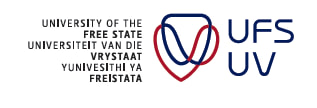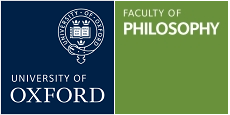Questioning ‘Western Philosophy’: Philosophical, Historical, & Historiographical Challenges (28-30 Apr 2023)
|
Over the last century, the idea of a ‘Western Philosophy’ has become pervasive in academia. It is widely and uncritically used as a neutral, pseudo-geographic descriptor. It has also entered wider cultural milieus through popular texts like Bertrand Russell’s 1945 History of Western Philosophy and, more recently, histories like Anthony Gottlieb’s 2000 The Dream of Reason: a History of Western Philosophy or James Garvey's and Jeremy Stangroom’s 2012 The Story of Philosophy: a History of Western Thought. However, very few authors have defined this vague term, brought it into view, or questioned the very idea.
|
Confirmed invited speakers:
● Peter Adamson (LMU, Munich/King’s College London) ● Lucy Allais (Johns Hopkins/ Witwatersrand) ● Kimberly Ann Harris (Virginia) ● Yoko Arisaka (Hildesheim) ● Robert Bernasconi (Penn State) ● Souleymane Bachir Diagne (Columbia) |
● Lewis Gordon (Connecticut) ● Monika Kirloskar-Steinbach (Vrije Universiteit Amsterdam) ● Catherine König-Pralong (EHESS Paris) ● Lin MA (Renmin, Beijing) ● Linda Martín Alcoff (Hunter College, CUNY) ● Christoph Schuringa (New College of the Humanities, London) |
|
Questioning ‘Western Philosophy’ will be the first international conference that subjects this concept to critical interrogation, asking whether it is legitimate, where it comes from, when and how it becomes widespread, and how it impacts our understanding of philosophy and its history.
|
Existing WorkBuilding on decades of work from, inter alia, the history of philosophy, global intellectual history, intercultural and comparative philosophy, critical philosophy of ‘race’, and decolonial studies, the conference will explore the concept of ‘Western Philosophy’ from philosophical, historical, and historiographical perspectives. The conference therefore aims to bring together scholars working across multiple philosophical traditions from around the world, and to draw together many of the specific debates that have taken place within these fields to explore their broader significance for our understanding of philosophy and its history.
|
Conference DiscussionsContributors to the conference will tackle several of the thorny issues at stake: the legitimacy of descriptors, such as ‘Western’, when applied to philosophy (especially if considered a universal practice of human reason); the historical circumstances in which the idea of ‘Western Philosophy’ emerged; and the ways in which disciplinary history of philosophy often presents ‘Western Philosophy’ as equivalent to ‘Philosophy’ as such, implying the exclusion of non-European philosophical traditions from the mainstream 'canon'.
|
Contributions
A central impetus for this conference comes from a class of debates over so-called ‘non-Western’ philosophical traditions. In general, these are subject to similar kinds of scrutiny, namely whether they are ‘really philosophy’ or not, which often hampers genuine engagement with the content in question. Such legitimacy debates have been widespread in African and Chinese philosophy, but also amongst scholars working on Latin American and Indigenous philosophies, Islamic philosophy and Jewish philosophy, and sometimes also Indian philosophy. Remarkably, only ‘Western Philosophy’ escapes such scrutiny, and is often conflated with philosophy as such. This situation inhibits progress across numerous philosophical traditions by entrenching a questionable standard against which other traditions must supposedly measure themselves. Robert Bernasconi, for example, has drawn attention to the phenomenon whereby for something to be ‘African Philosophy’, it must either be wholly distinguished from ‘Western Philosophy’ (but is therefore taken to be unintelligible as philosophy) or must live up to the standards of ‘Western Philosophy’ (but is therefore thought to be unoriginal or not to make a distinctive contribution). Lucy Allais has argued that a manoeuvre such as this “cedes too much conceptual ground as property of the West”. Questioning the idea of ‘Western Philosophy’ thus opens new possibilities for so-called ‘non-Western Philosophies’. Challenging the presupposition that a given philosophical position must either be assimilated into - or distinguished from - ‘Western Philosophy’ offers a pathway yet to be realised beyond these legitimacy debates.
Challenging the idea of ‘Western Philosophy’ also has the potential to foster new ways of understanding the history of philosophy in Europe. European historiography saw a significant shift in the 18th century, especially in the histories of philosophy by German scholars like J.J. Brucker, C. Meiners, and D. Tiedemann, as well as Kantian historians like W.G. Tennemann, and G.W.F. Hegel and his followers. Scholars such as Peter Park and Robert Bernasconi have highlighted their role in the erasure of African and Asian sources and the repainting of philosophy as purely European and White, while Eileen O’Neill, Sabrina Ebbersmeyer and others have shown that in the same period, women were also erased from the history of philosophy across Europe. Through the presentations at the conference, we hope to develop a clearer picture of how these dynamics shaped or even grounded the idea of ‘Western Philosophy’ which emerged over the 19th and 20th centuries.
Challenging the idea of ‘Western Philosophy’ might also involve questioning the standard narrative which presents the history of philosophy as a continuous, progressive development from the ancient Greeks to the present-day - with no influences from beyond Europe. The conference therefore builds on recent work on the complex entanglements in the history of philosophy. This includes, for instance, the work of scholars like Souleymane Bachir Diagne and Peter Adamson who have highlighted the connections between philosophers in Europe, Africa, and Asia in the ancient world, the late mediaeval and early modern periods. Addressing these complexities gives a markedly different picture of the history of philosophy than that which is told in mainstream European narratives.
The conference also seeks to explore the impact of colonialism and how its legacies have shaped mainstream approaches to philosophy and its history. Numerous scholars, including Linda Martín Alcoff and Catherine König-Pralong, have argued for a dense web of relationships between colonial geopolitics and philosophical activity, both in Europe and in regions colonised. As a result, many such Eurocentric narratives have been uncritically reproduced elsewhere in the world. Significant contributions here have already been made amongst decolonial scholars, such as Lewis R. Gordon and Monika Kirloskar-Steinbach, and scholars working in social epistemology and epistemologies of ignorance, like Linda Martín Alcoff and Charles Mills. By focusing on the idea of ‘Western Philosophy’, the conference brings together these variegated epistemological contributions alongside the historical and historiographical, and facilitates cross-cutting dialogue across traditions and methodologies.
Challenging the idea of ‘Western Philosophy’ also has the potential to foster new ways of understanding the history of philosophy in Europe. European historiography saw a significant shift in the 18th century, especially in the histories of philosophy by German scholars like J.J. Brucker, C. Meiners, and D. Tiedemann, as well as Kantian historians like W.G. Tennemann, and G.W.F. Hegel and his followers. Scholars such as Peter Park and Robert Bernasconi have highlighted their role in the erasure of African and Asian sources and the repainting of philosophy as purely European and White, while Eileen O’Neill, Sabrina Ebbersmeyer and others have shown that in the same period, women were also erased from the history of philosophy across Europe. Through the presentations at the conference, we hope to develop a clearer picture of how these dynamics shaped or even grounded the idea of ‘Western Philosophy’ which emerged over the 19th and 20th centuries.
Challenging the idea of ‘Western Philosophy’ might also involve questioning the standard narrative which presents the history of philosophy as a continuous, progressive development from the ancient Greeks to the present-day - with no influences from beyond Europe. The conference therefore builds on recent work on the complex entanglements in the history of philosophy. This includes, for instance, the work of scholars like Souleymane Bachir Diagne and Peter Adamson who have highlighted the connections between philosophers in Europe, Africa, and Asia in the ancient world, the late mediaeval and early modern periods. Addressing these complexities gives a markedly different picture of the history of philosophy than that which is told in mainstream European narratives.
The conference also seeks to explore the impact of colonialism and how its legacies have shaped mainstream approaches to philosophy and its history. Numerous scholars, including Linda Martín Alcoff and Catherine König-Pralong, have argued for a dense web of relationships between colonial geopolitics and philosophical activity, both in Europe and in regions colonised. As a result, many such Eurocentric narratives have been uncritically reproduced elsewhere in the world. Significant contributions here have already been made amongst decolonial scholars, such as Lewis R. Gordon and Monika Kirloskar-Steinbach, and scholars working in social epistemology and epistemologies of ignorance, like Linda Martín Alcoff and Charles Mills. By focusing on the idea of ‘Western Philosophy’, the conference brings together these variegated epistemological contributions alongside the historical and historiographical, and facilitates cross-cutting dialogue across traditions and methodologies.
Dates & Directions
Dates: 28-30 April 2023
Location: Worcester College, Sultan Nazrin Shah Centre, Oxford, OX1 2HB, United Kingdom
More details regarding the conference venue: Sultan Nazrin Shah Centre
Location: Worcester College, Sultan Nazrin Shah Centre, Oxford, OX1 2HB, United Kingdom
More details regarding the conference venue: Sultan Nazrin Shah Centre
Generously Supported By
University of the Free State
Philiminality Oxford
Faculty of Philosophy, University of Oxford
Nanyang Technological University, Singapore
London Arts & Humanities Partnership
Mind Association
British Society for the History of Philosophy (BSHP)
Aristotelian Society
UK Kant Society (UKKS)
Worcester College, Oxford
All Souls College, Oxford
St Catherine's College, Oxford
Maison française d’Oxford
Oxford Centre for Early Modern Studies (CEMS)
Oxford Centre for Global History
Oxford Centre for European History
Philiminality Oxford
Faculty of Philosophy, University of Oxford
Nanyang Technological University, Singapore
London Arts & Humanities Partnership
Mind Association
British Society for the History of Philosophy (BSHP)
Aristotelian Society
UK Kant Society (UKKS)
Worcester College, Oxford
All Souls College, Oxford
St Catherine's College, Oxford
Maison française d’Oxford
Oxford Centre for Early Modern Studies (CEMS)
Oxford Centre for Global History
Oxford Centre for European History
Top Image: Reconstruction of Muhammad al-Idrisi’s map, Kitab Rudjdjar (1154, originally
نزهة المشتاق في اختراق الآفاق), including much of Europe, Africa, and Asia
نزهة المشتاق في اختراق الآفاق), including much of Europe, Africa, and Asia
















